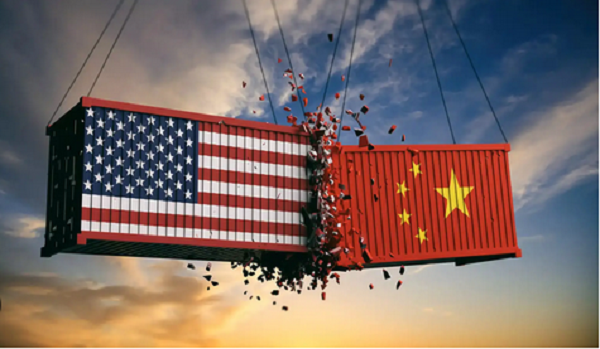Is there any benefit Canada could gain from U.S.-China trade war?
The escalating trade war between the United States and China has disrupted global markets and supply chains, forcing countries to explore new opportunities.
Ofer Baron, a professor of operations management at the University of Toronto’s Rotman School of Management, believes Canada could also gain from these shifts—if it can navigate the uncertainty carefully.
In an interview with CTV’s Your Morning, Baron noted that the ongoing trade tensions present both challenges and opportunities for Canada. While Canada’s role in global markets may not be dominant, its strategic positioning offers some advantages. For instance, while the U.S. faces a decline in soybean exports to China, Canada could potentially benefit from these changes in the agricultural market.
“There’s sort of two issues here,” said Baron. “We can probably sell soybeans to China at somewhat higher prices than the market prices. But the U.S. soybeans that don’t go to China will enter other markets, likely lowering prices there.”
Canada’s soybean production, however, is much smaller than the U.S.’s, which typically exports around 35 million tonnes to China each year—nearly five times more than Canada produces.
“We’re not a huge player in this market,” Baron said. “While we may increase our sales to China, it won’t be a game-changer for Canada.”
That being said, Baron emphasized that Canada can still capitalize on its strong relationship with the U.S., one of its largest trading partners, and use that as leverage in broader negotiations.
“We still have a significant trade relationship with the U.S.,” he said. “That gives us a unique advantage, especially in terms of resources.”
Baron also stressed that diversification is key to Canada’s future in the global market.
“The main thing we’ve learned from the U.S.-China trade war is the importance of diversification,” he said. “In supply chain management, you don’t want a single supplier or a single customer because that exposes you to risk. We need to prepare options with additional suppliers and customers.”
Baron emphasized that smart negotiations and building diversified trade ties are essential for long-term stability.
“We’re a much smaller player than the U.S. or China,” he noted. “But by sitting down and negotiating, we can work to get better deals for Canadians.”
This article was first reported by CTV News












